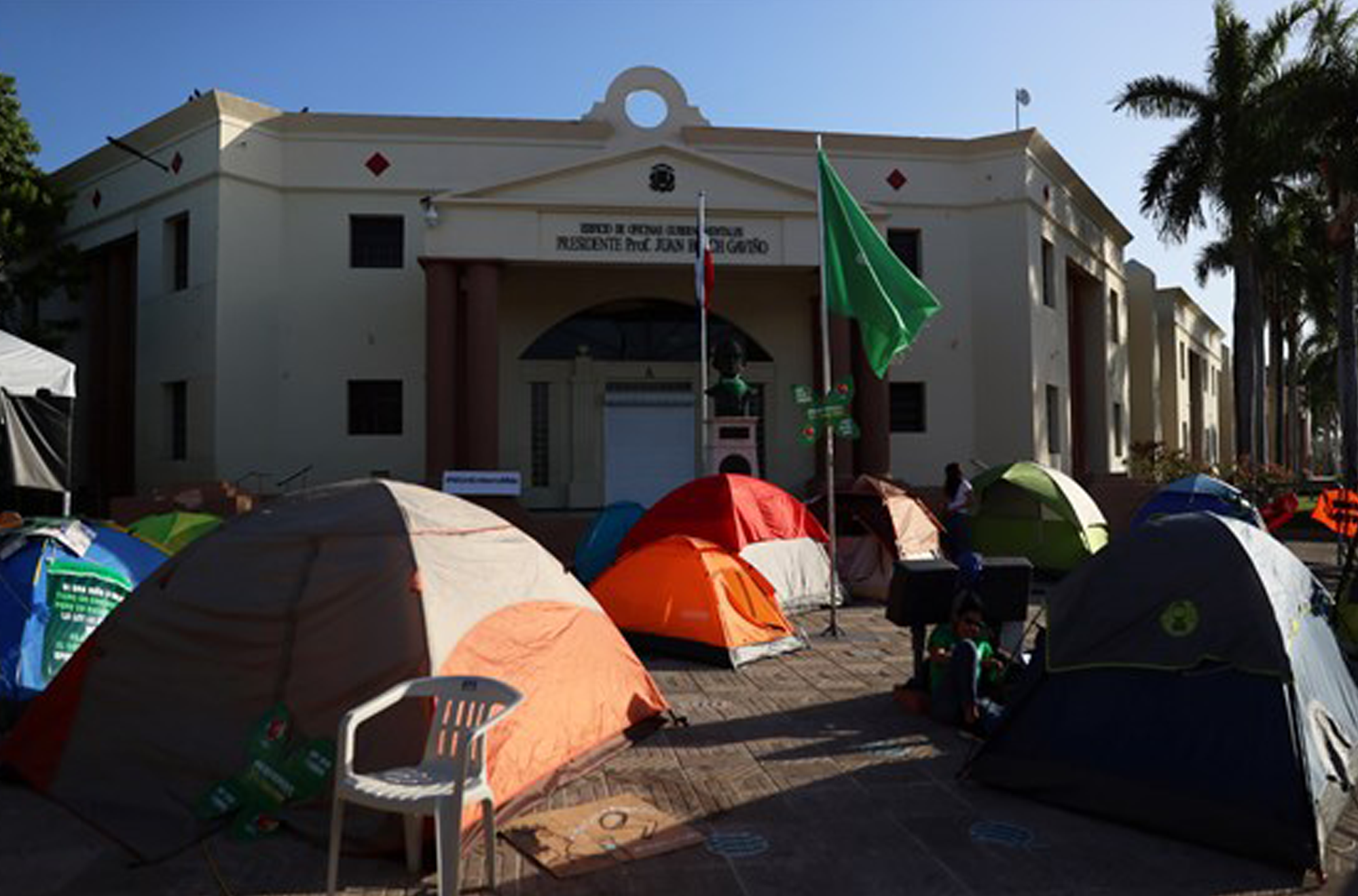
Tents of abortion rights protestors in front of the National Palace, 18 March 2021
Criminalised abortions is “causing an increase in maternal mortality and morbidity, which places us as one of the countries with the worst health indicators,” one medical professional said.
A promise made on the campaign trail by President Luis Abinader but not kept, to partly decriminalise abortions when a woman’s life is in danger, the pregnancy is not viable or in cases of rape or incest, has sparked a month of daily protests in the Dominican Republic, where a total ban on abortions remains, even when a woman’s life is at risk.
Abinader had stressed his support for this law reform during an interview with Spanish newspaper El País in December 2020. Then there was an anti-abortion backlash, surely not unexpected, that led him to back down, saying he was “not going to impose his personal opinion” on other lawmakers.
Hundreds of women and reproductive rights advocates began gathering every day outside the national palace in mid-March 2021 after Dominican lawmakers failed to vote. The protests spread to New York City, where in 2017 an estimated 872,500 Dominicans lived.
A woman forced to remain pregnant under life-threatening circumstances has a 90%chance of dying, Dr Waldo Ariel Suero, president of the Association of Dominican Physicians, said during a press conference Friday alongside the country’s National Nurses Association. Both associations oppose criminalised abortion for public health reasons.
“It’s practically impossible for a woman to survive a life-threatening pregnancy. When you don’t do anything, not only will the baby die, but the mother will also die as well. It is totally illogical to take away a woman’s right to life due to a pregnancy,” Suero said. Medical professionals at the press conference were also asking to be able to terminate a pregnancy on the three grounds “without the fear of being prosecuted. The Dominican Republic’s 19th-century Penal Code currently imposes prison sentences of up to two years on women and girls who induce abortions and up to 20 years for medical professionals who provide them, according to Human Rights Watch.
The UN Development Programme urged the Dominican Republic to decriminalize abortion on the three grounds on 19 April. But legislators at the so-called Justice Commission supported legalising only to save the woman’s life.
Public hearings are due to be held starting 26 April. A few tents in front of the National Palace have grown into a social movement in the interim.
SOURCE: NBC News, by Nicole Acevedo, 14 April 2021 + PHOTO by Ricardo Rojas/Reuters file, 18 March 2021



